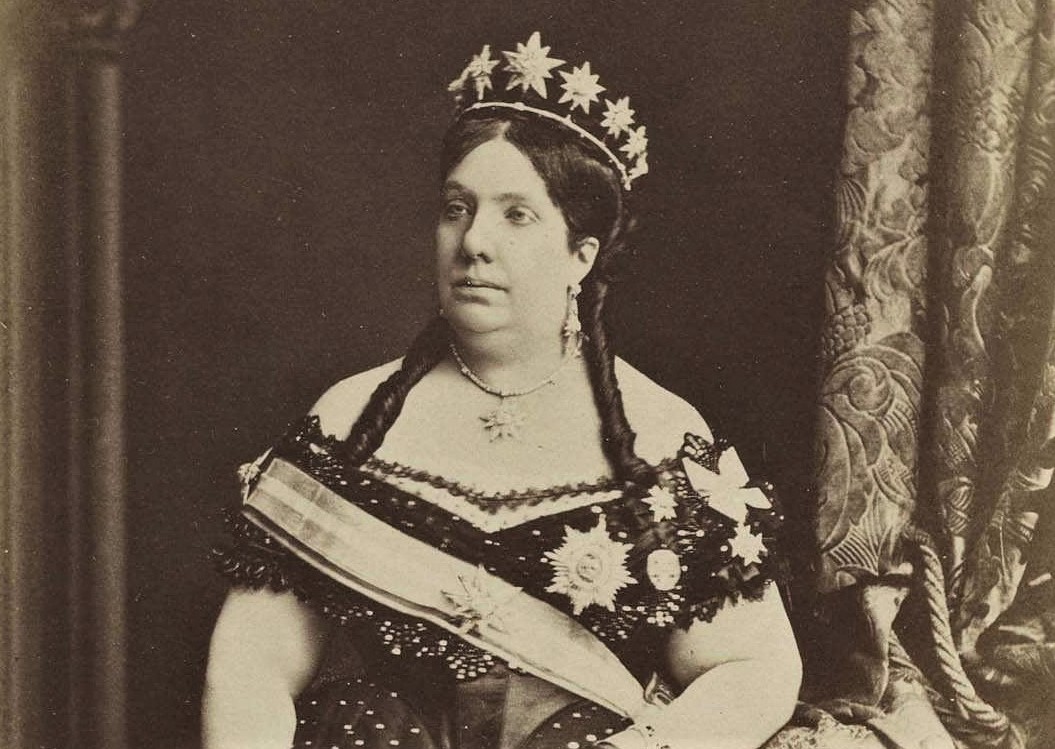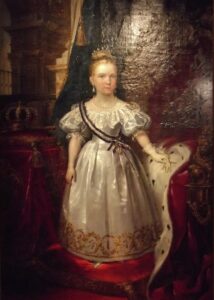The Carlists played an important role during Isabella II’s reign . This was characterised by palace intrigues and backroom politics. Mainly conservative Catholics, peasants and Basque nationalists supported the Carlists. They predominantly had a following in the northern rural areas of Catalonia, Navarre, Aragon and the Basque Country and in Andalucia.
Three Carlist Wars took place between 1833 and 1876. Ultimately, these (civil) wars led to little success. A military coup in 1874 brought Isabella II’s son, Alfonso XII, to the throne. After the Carlists had been defeated as a military power factor, they continued to have their political influence on the conservative side for quite some time. However, this influence diminished over time. As a result, the Carlist movement led a marginal existence.
Related post: A brief history of Spain – Part 19, The Bourbons vs the Carlists (1700 – 1868)
The army remained loyal to the throne during the First Carlist War, which was usurped by the three-year-old Isabella. Because of her young age, she was represented by her mother, the regent Maria Christina. After the victory over the Carlists in 1839, the army saw itself as a political power within the constitutional monarchy.
General Espartero
In 1840 General Espartero staged a coup and Maria Cristina was deposed. She had lost her last credit by marrying an ex-corporal, the son of a shopkeeper, whom she had given a title of nobility before the marriage. Espartero had radical liberal sympathies. During his two-year reign, many church lands were again confiscated. In 1843, the conservative-liberal generals Narvaez and Serrano staged a coup against Espartero and Isabela (II) came to the throne.
Unhappy marriage
Under French pressure, Isabella married her cousin Francisco de Asis de Borbón at the age of sixteen. That was not a happy marriage. State portraits show a robust, coarse woman next to a scrawny male. The story that went around was that he was impotent, homosexual or both. Isabella had nine offspring. However, historians highly doubt that any of them are legal.
Reign characterised by palace intrigues and backroom politics
The general reproach against Isabella was that, unrestrained by a mediocre intelligence, she engaged in political affairs in a partisan, headstrong manner. Because of palace intrigues, backroom politics, accusations of large-scale corruption and the fact that she would have slept with several ministers her kingship did not contribute to the emergence of a stable democratic constitutional monarchy in Spain. Therefore, her conduct (1843 – 1868) characterised her reign by political intransigence, conspiracies, military uprisings and coups d’état.
Controversial queen
In the fight against the Carlists, the liberal coalition supported Isabella. This consisted of conservative and progressive liberals. Due to abuses and corruption at court, her political preference for the conservatives and the influence of all this on her governments, Isabella had slowly but surely lost the goodwill of her most loyal supporters. Added to this was the severe economic crisis that prevailed from 1866 to 1868. Moreover, Isabella’s umpteenth relationship, this time not with a general or a politician but with the son of a pastry chef, caused bad blood.
The popular progressive General Prim, hero of the Moroccan War, and a tactful politician, staged a coup d’état in 1868 to save the “Spanish Honour”. At the age of 38 Isabella fled to France.
Click here to read other parts of InSpain.news series ‘A brief history of Spain’



